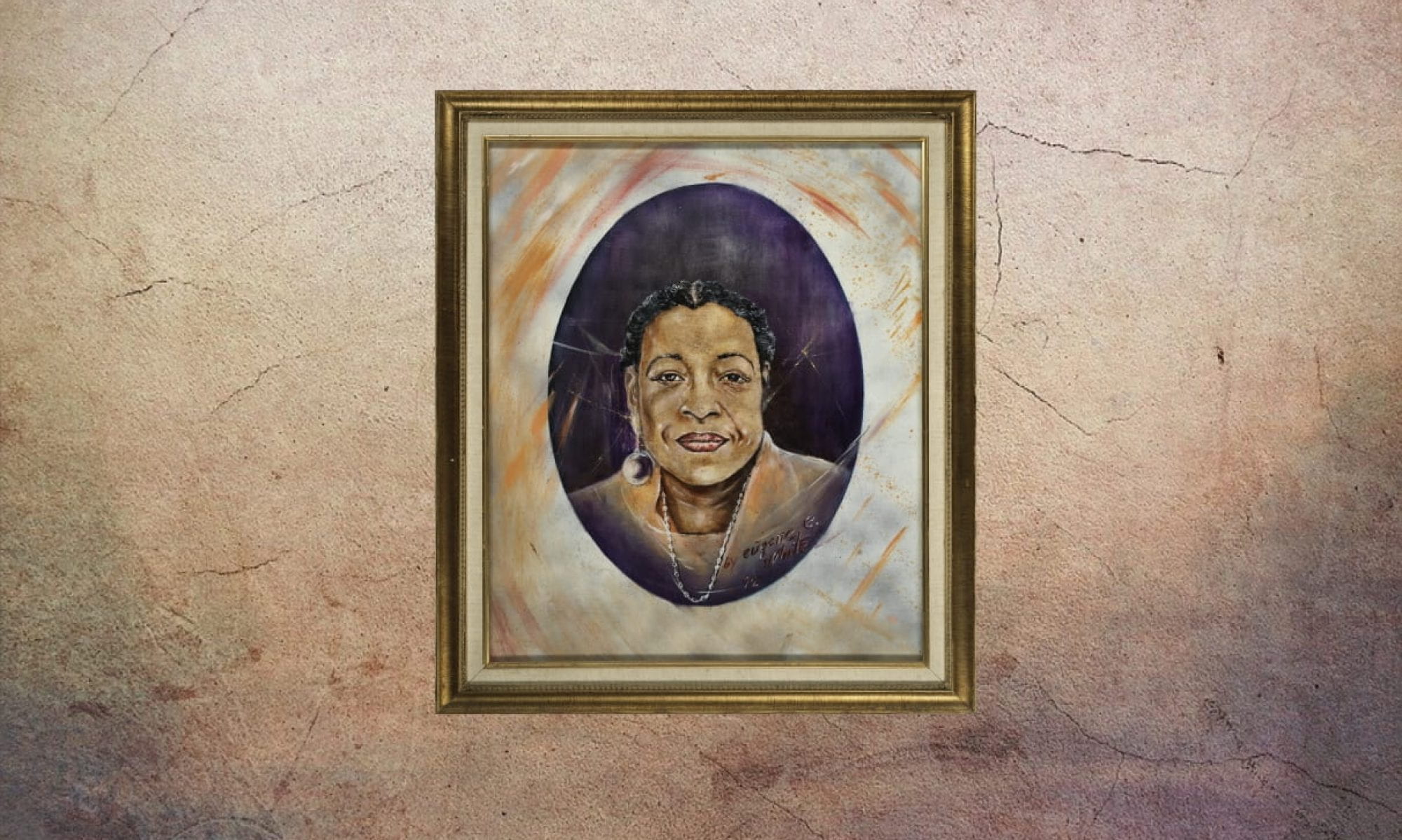
Reverend Hamilton T. Boswell’s involvement in social activism, government, and the church sparked change in the Fillmore District of San Francisco. His efforts in founding several pivotal organizations were crucial for the growth and progress of his community, earning him a tribute on the Ella Hill Hutch Community Center mural.
In 1914, Hamilton Boswell was born in Dallas, Texas. His parents were Warren Boswell, an educator and violinist, and Grace Boswell, a social worker and concert pianist. In 1920, his family moved to Los Angeles, where he completed high school. Boswell then attended Wiley College in Texas where he pledged the Alpha Phi Alpha fraternity, dedicated to developing leaders and promoting advocacy for communities. (This fraternity later honored him with the Award of Merit for his 72 years of service to the organization.)
In 1939 Boswell married Eleanor Gragg, and they remained together for 68 years. After World War II, Boswell’s family relocated from Texas to San Francisco. Upon earning his undergraduate degree from Wiley College, he moved to Los Angeles to earn his master’s and doctoral degrees in theology at the University of Southern California.
After he received his doctorate, he began serving at St. John’s Methodist Church and Bowen Memorial Methodist Church in New York City. He then moved to San Francisco, where he began to serve at Jones Memorial United Methodist Church for the next three decades.
When Boswell moved to the Fillmore District, he became interested in the Fillmore’s oppressive and illegal redlining practices, where realtors would outline in red pen designated areas in which people of color were allowed to live. In order to combat this issue, he founded the Jones Methodist Credit Union. This allowed for African Americans to borrow money in order to purchase homes in redlined communities. This credit union now has assets valued at over hundreds of thousands of dollars and is able to give back to the low-income communities of San Francisco.
Rev. Hamilton T. Boswell fought for more equitable housing in San Francisco.
Reverend Boswell also created the Jones Memorial Homes, which allows senior citizens to have homes that enable healthy lifestyle choices and active participation in their communities. The Jones Memorial Homes Project, with 186 units, was the first federally financed senior citizen housing program in San Francisco.
Though Reverend Boswell was significantly involved in the church, he was also active in local government. It was through the church that Reverend Boswell met future San Francisco Mayor Willie Brown and became one of his mentors. Reverend Boswell happened to hire Brown to work for the church doing janitorial duties when he was a teenager. Boswell’s influence was clearly seen throughout Willie Brown’s life, both politically and spiritually.
In 1963, Boswell served on the city’s Juvenile Justice Commission where he ensured that incarcerated minors were given their lawful rights and humane treatment. Soon afterwards, he became the Chairman of the Housing Authority Commission from 1964–1974, whose mission was “to deliver safe and decent housing for low-income households and integrate economic opportunity for residents” (Housing Authority Commission).
After deciding to go into retirement, Willie Brown selected Rev. Boswell to serve as Chaplain of the California State Assembly, a position that he held for a decade. Boswell was also chairman of the San Francisco Conference of Religion and Race, and the co-chair of the Church Labor Conference, which rallied city support for Martin Luther King, Jr., and his efforts in the civil rights movement. Reverend Boswell was awarded the Freedom Award by the NAACP in both 1972 and 1974. He was also awarded the Civic Award of the Silver Spur by the non-profit organization SPUR (San Francisco Bay Area Planning and Urban Research Association) for his social activism in housing.
Having been raised in a household that valued education and social work, Reverend Boswell was able to create connections with his church members on a personal level. His mentorship played an essential role in his helping to build a stronger community. By using his motivation, ministry, and passion to serve those in need, Boswell inspired African American members of the Fillmore to follow suit and reach great heights. Boswell died at the age of 92 in Pinole, California, but his legacy lives on.
— Kristen Williams and Lupita Garcia
Works Cited
Alpha Phi Alpha. 2015.
Danesi, Natalia. “Hamilton Boswell.” Find A Grave Memorials. 8 Dec 2008.
“The Jones History.” Jones Memorial United Methodist Church.” 2018.
Juvenile Justice Commission. 2015.
Knight, Heather. “Rev. Hamilton T. Boswell—Led S.F. Blacks.” SF Chronicle. 11 May 2007.
